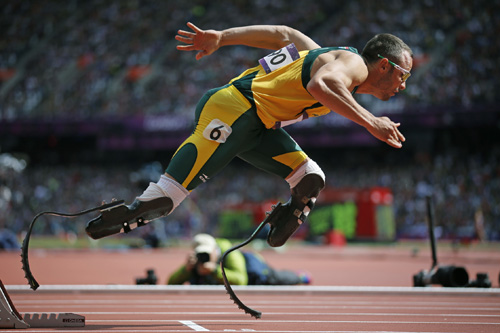I’m fascinated by the way our society interprets sports. While almost entirely frivolous, sports are critical to our cultural identity and understanding. Fans and nonfans alike are constantly negotiating this balance, figuring out how much time, energy and passion to devote to something so trivial yet so clearly, so strangely important.
The rise and fall of an athletic icon

I’m fascinated by the way our society interprets sports. While almost entirely frivolous, sports are critical to our cultural identity and understanding. Fans and nonfans alike are constantly negotiating this balance, figuring out how much time, energy and passion to devote to something so trivial yet so clearly, so strangely important.
As someone who writes about sports on a weekly basis, this tension is probably my favorite thing to think about. Professional sport is entertainment, so it is fueled by billions of dollars of incentive in order to make our relationship with athletics more personally and culturally significant. Whether their individual motives are sinister, it does behoove athletes, owners, coaches and the sports media to deepen our connection, to see sports as a valuable lens through which to perceive our lives.
I think that probably 89 percent of this is crap—pure manipulation designed to convince us that sports somehow teach us something about who we are. You can see through the facade when two juiced-up freaks like Mark McGwire and Sammy Sosa bomb an inconceivable number of home runs and no one makes a peep, or when Lance Armstrong wins seven consecutive Tours de France, competing in the world’s most notoriously dirty sport, and is painted as a hero.
And you can see it in the relative silence that has followed the case of Oscar Pistorius, the South African track star who ran in last summer’s Olympics despite being a double-amputee. He became an international inspiration and a national hero in his home country.
Pistorius was arrested last week for the murder of his girlfriend following what appears to be a history of domestic abuse. Presented with a genuine opportunity to probe the connection between society and sport, the American media has been oddly quiet, passive and noncritical in the wake of his arrest. That’s how you know they are full of it.
I want to clarify. I am not interested in some story about the mental and emotional makeup of an athlete, or some trumped-up nonsense about the perils of fame that plague athletes of Pistorius’ stature. Those concepts aren’t any more about sport and society than LeBron’s MVP candidacy. Those are invented things that don’t teach us anything about ourselves.
What I am talking about is that, though murders and abuses happen every day in alarming numbers, their reality tends not to register with us unless we know someone involved personally. They become abstract horrors. But we know Oscar Pistorius. We knew OJ Simpson. They are personal to us in a way that can fuel a real discussion about important issues. We should be talking about these things all the time, anyway; tragedies like this offer a rare opportunity to drive the discussion home.
As a sports fan, my reaction to Pistorius’ arrest was one of sadness and disbelief at the utter waste of it all. I am ashamed to admit, though, that when I hear of similar stories on the news, violence that happens to my neighbors in my own city, I don’t give it a second thought. I change the channel. I doubt I’m alone.
And that’s where our complicated relationship with sports can truly have meaning and impact. That’s where this frivolous entertainment really can be a prism through which we see ourselves. The sports media complex has a great deal at stake in the business of heroes and villains, positioning these men and women as special, larger-than-life, exceptional.
But Oscar Pistorius is just an ordinary man that found himself, as an athlete, in an extraordinary situation. He is a man that, like many men in our society, seems to have abused his girlfriend over a period of time before ultimately killing her. And Reeva Steenkamp, like so many women, suffered a tragic death at the hands of her abuser. It wasn’t their exceptionalism that put them in this horrible place. Unfortunately, they are just like so many of us.
And that is something we need to talk about.






